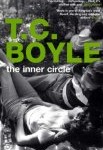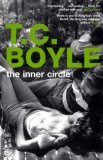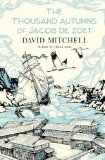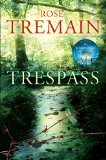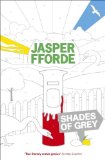< ?php echo amazonim('0099488930'); ?>
Translated from the Japanese by Rebecca Copeland
Out is one of my favourite books and so I was very excited about reading Kirino’s second novel, < ?php echo amazon('0099488930','Grotesque’); ?>. Unfortunately, it failed to live up to my expectations.
Grotesque is very different in style to Out. It is slower, less gritty and without the moral dilemmas that made Out so special.
Grotesque centres around the murder of two prostitutes in Tokyo. The unnamed narrator was the sister of one of the victims and the best friend of the other. Her life becomes dominated by their deaths, as it is all anyone wants to talk about with her. We find out who the killer was very early on, so this book isn’t really a thriller, it is more like a character study. It deals with the motivations for prostitution and the process of grief following the murders of people who are close to you.
It sounds like a fascinating book, but unfortunately I found it quite boring. Some people think it is clever that the narrator was unreliable and meandered from one reflection to the next, but I found it very frustrating. There was no plot thread to drive the story forward and the ending was disappointing. I think this quote gives you a good sense of the apathetic attitude present in this book:
You imagine Yuriko’s death shocked me, but it didn’t. Did I hate her murderer? No. Like my father, I didn’t really care about learning the truth.
I felt as though I was wading through depressive thoughts and didn’t see the point of the seemingly random snippets of their childhood lives.
There were several theoretically shocking scenes in this book, but they had no effect on me as I hadn’t bonded with any of the characters.
The writing was of a high quality and I didn’t find any of the jarring Japanese translation problems that I encountered with Out. I also loved the first chapter and her imaginative predictions of what her children would look like if she decided to sleep with various men. There were many other good paragraphs, but I’m afraid that overall the book was disappointing.
If you are interested in reading an investigation into the thoughts of a disturbed young woman then you might enjoy this book, but if you are looking for the best thriller on the planet I suggest you try Out.

Have you read any of Natsuo Kirino’s books?
What do you think of them?
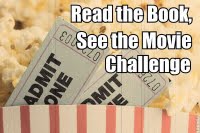 Ready When You Are, C.B. is hosting the Read the Book, See the Movie Challenge which involves reading a book and then watching the film based upon it.
Ready When You Are, C.B. is hosting the Read the Book, See the Movie Challenge which involves reading a book and then watching the film based upon it. when it comes out on DVD and hope to watch and read Twilight
in 2010, but other than that I can’t think of any ideas.
